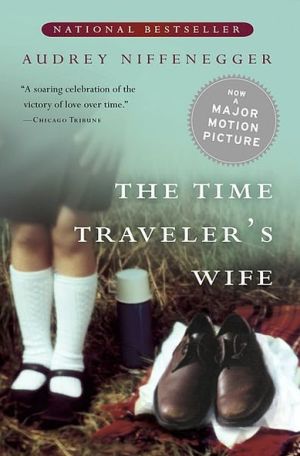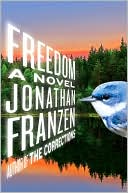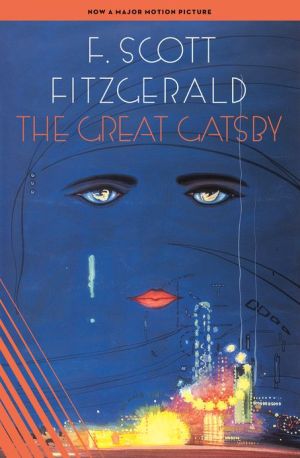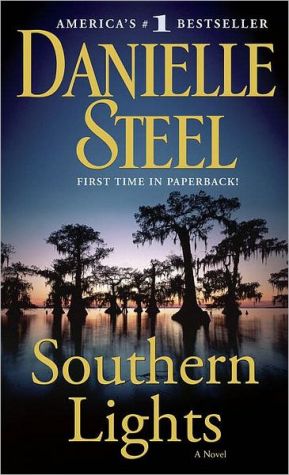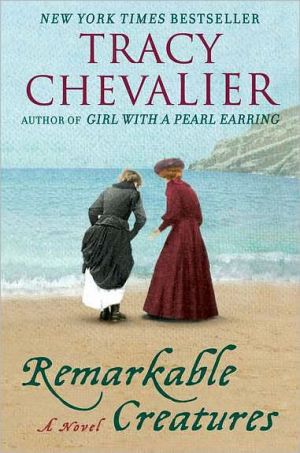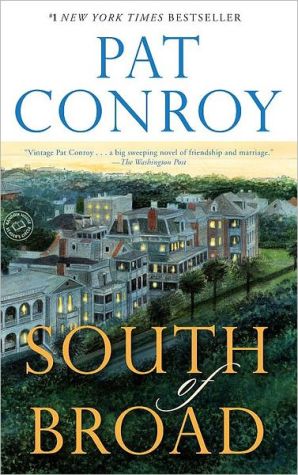The Time Traveler's Wife
Audrey Niffenegger's innovative debut, The Time Traveler's Wife, is the story of Clare, a beautiful art student, and Henry, an adventuresome librarian, who have known each other since Clare was six and Henry was thirty-six, and were married when Clare was twenty-three and Henry thirty-one. Impossible but true, because Henry is one of the first people diagnosed with Chrono-Displacement Disorder: periodically his genetic clock resets and he finds himself misplaced in time, pulled to moments of...
Search in google:
A dazzling novel in the most untraditional fashion, this is the remarkable story of Henry DeTamble, a dashing, adventuresome librarian who travels involuntarily through time, and Clare Abshire, an artist whose life takes a natural sequential course. Henry and Clare's passionate love affair endures across a sea of time and captures the two lovers in an impossibly romantic trap, and it is Audrey Niffenegger's cinematic storytelling that makes the novel's unconventional chronology so vibrantly triumphant. An enchanting debut and a spellbinding tale of fate and belief in the bonds of love, The Time Traveler's Wife is destined to captivate readers for years to come.The Washington Post… what The Time Traveler's Wife does best is to show the inner life of an enduring relationship as only its protagonists can know it. — Eric Weinberger
Prologue:\ Clare: It's hard being left behind. I wait for Henry, not knowing where he is, wondering if he's okay. It's hard to be the one who stays.\ I keep myself busy. Time goes faster that way.\ I go to sleep alone, and wake up alone. I take walks. I work until I'm tired. I watch the wind play with the trash that's been under the snow all winter. Everything seems simple until you think about it. Why is love intensified by absence?\ Long ago, men went to sea, and women waited for them, standing on the edge of the water, scanning the horizon for the tiny ship. Now I wait for Henry. He vanishes unwillingly, without warning. I wait for him. Each moment that I wait feels like a year, an eternity. Each moment is as slow and transparent as glass. Through each moment I can see infinite moments lined up, waiting. Why has he gone where I cannot follow?\ Henry: How does it feel? How does it feel?\ Sometimes it feels as though your attention has wandered for just an instant. Then, with a start, you realize that the book you were holding, the red plaid cotton shirt with white buttons, the favorite black jeans and the maroon socks with an almost-hole in one heel, the living room, the about-to-whistle tea kettle in the kitchen: all of these have vanished. You are standing, naked as a jaybird, up to your ankles in ice water in a ditch along an unidentified rural route. You wait a minute to see if maybe you will just snap right back to your book, your apartment, et cetera. After about five minutes of swearing and shivering and hoping to hell you can just disappear, you start walking in any direction, which will eventually yield a farmhouse, where you have the option of stealing or explaining. Stealing will sometimes land you in jail, but explaining is more tedious and time consuming and involves lying anyway, and also sometimes results in being hauled off to jail, so what the hell.\ Sometimes you feel as though you have stood up too quickly even if you are lying in bed half asleep. You hear blood rushing in your head, feel vertiginous falling sensations. Your hands and feet are tingling and then they aren't there at all. You've mislocated yourself again. It only takes an instant, you have just enough time to try to hold on, to flail around (possibly damaging yourself or valuable possessions) and then you are skidding across the forest green carpeted hallway of a Motel 6 in Athens, Ohio, at 4:16 a.m., Monday, August 6, 1981, and hit your head on someone's door, causing this person, a Ms. Tina Schulman from Philadelphia, to open this door and start screaming because there's a naked, carpet-burned man passed out at her feet. You wake up in the County Hospital concussed with a policeman sitting outside your door listening to the Phillies game on a crackly transistor radio. Mercifully, you lapse back into unconsciousness and wake up again hours later in your own bed with your wife leaning over you looking very worried.\ Sometimes you feel euphoric. Everything is sublime and has an aura, and suddenly you are intensely nauseated and then you are gone. You are throwing up on some suburban geraniums, or your father's tennis shoes, or your very own bathroom floor three days ago, or a wooden sidewalk in Oak Park, Illinois circa 1903, or a tennis court on a fine autumn day in the 1950s, or your own naked feet in a wide variety of times and places.\ How does it feel?\ It feels exactly like one of those dreams in which you suddenly realize that you have to take a test you haven't studied for and you aren't wearing any clothes. And you've left your wallet at home.\ When I am out there, in time, I am inverted, changed into a desperate version of myself. I become a thief, a vagrant, an animal who runs and hides. I startle old women and amaze children. I am a trick, an illusion of the highest order, so incredible that I am actually true.\ Is there a logic, a rule to all this coming and going, all this dislocation? Is there a way to stay put, to embrace the present with every cell? I don't know. There are clues; as with any disease there are patterns, possibilities. Exhaustion, loud noises, stress, standing up suddenly, flashing light -- any of these can trigger an episode. But: I can be reading the Sunday Times, coffee in hand and Clare dozing beside me on our bed and suddenly I'm in 1976 watching my thirteen-year-old self mow my grandparents' lawn. Some of these episodes last only moments; it's like listening to a car radio that's having trouble holding on to a station. I find myself in crowds, audiences, mobs. Just as often I am alone, in a field, house, car, on a beach, in a grammar school in the middle of the night. I fear finding myself in a prison cell, an elevator full of people, the middle of a highway. I appear from nowhere, naked. How can I explain? I have never been able to carry anything with me. No clothes, no money, no ID. Fortunately I don't wear glasses. I spend most of my sojourns acquiring clothing and trying to hide.\ It's ironic, really. All my pleasures are homey ones: armchair splendor, the sedate excitements of domesticity. All I ask for are humble delights. A mystery novel in bed, the smell of Clare's long red-gold hair damp from washing, a postcard from a friend on vacation, cream dispersing into coffee, the softness of the skin under Clare's breasts, the symmetry of grocery bags sitting on the kitchen counter waiting to be unpacked. I love meandering through the stacks at the library after the patrons have gone home, lightly touching the spines of the books. These are the things that can pierce me with longing when I am displaced from them by Time's whim.\ And Clare, always Clare. Clare in the morning, sleepy and crumple-faced. Clare with her arms plunging into the papermaking vat, pulling up the mold and shaking it so, and so, to meld the fibers. Clare reading, with her hair hanging over the back of the chair, massaging balm into her cracked red hands before bed. Clare's low voice is in my ear often.\ I hate to be where she is not, when she is not. And yet, I am always going, and she cannot follow.
\ From Barnes & NobleBarnes & Noble Discover Great New Writers\ Often lighthearted, thoroughly original, and ultimately profoundly moving, Audrey Niffenegger's first novel tells the story of two people destined to be together: Clare, a perfectly normal woman, and Henry, a time-traveler. \ According to the unique rules that Niffenegger creates, Henry travels unexpectedly and mostly to his own past, often when he is "all stressed out and [has] lost his grip on now." As Henry explains when he first meets Clare: "…the person you know doesn't exist yet. Stick with me, and sooner or later he's bound to appear. That's the best I can do." And while it's true that Henry travels to different moments in time, he also travels from them as well. He frequently gets lost in time and doesn't know "when" he is.\ But the real story of the book is the lifelong love Clare and Henry share as they try to make the most of the times they have together -- the times when Henry is not traveling.\ Subtle but powerful, The Time Traveler's Wife is a book whose importance becomes more evident with each turn of the page, provoking readers to ask themselves if they've made the most of the moments of their lives --moments so fleeting, they could be time travelers themselves. (Fall 2003 Selection)\ \ \ \ \ \ Chicago Tribune"[A] time-travel love story par excellence. . . . [A] soaring celebration of the victory of love over time."\ \ \ People"A powerfully original love story."\ \ \ \ \ The New YorkerSpirited . . . Niffenegger plays ingeniously in her temporal hall of mirrors."\ \ \ \ \ The Washington Post Book World"Tremendous grace and imagination . . . A love story without softness or flinching."\ \ \ \ \ People Magazine"A powerfully original love story."\ \ \ \ \ The Washington Post… what The Time Traveler's Wife does best is to show the inner life of an enduring relationship as only its protagonists can know it. — Eric Weinberger\ \ \ \ \ USA Today… Niffenegger, despite her moving, razor-edged prose, doesn't claim to be a romantic. She writes with the unflinching yet detached clarity of a war correspondent standing at the sidelines of an unfolding battle. She possesses a historian's eye for contextual detail. This is no romantic idyll. — Kathy Balog\ \ \ \ \ The New YorkerYoung lovers often believe themselves crossed by fate or by time, but those in Niffenegger’s spirited first novel have more reason than most. Henry suffers from Chrono-Impairment—a quasi-medical condition that catapults him, unwillingly, from one random point in time to another. Clare first meets him in 1977, when she is six and he materializes near her parents’ garden as a thirty-six-year-old from 2000; he returns regularly throughout her childhood from different times in their shared future. At last, when Clare is twenty and Henry twenty-eight, they meet in his present, and the relationship begins in earnest. But romance proves even trickier than usual when one person keeps vanishing to distant, and occasionally dangerous, times. Niffenegger plays ingeniously in her temporal hall of mirrors, but fails to make the connection between the lovers as compelling as their odd predicament.\ \ \ \ \ Publishers WeeklyThis highly original first novel won the largest advance San Francisco-based MacAdam/Cage had ever paid, and it was money well spent. Niffenegger has written a soaring love story illuminated by dozens of finely observed details and scenes, and one that skates nimbly around a huge conundrum at the heart of the book: Henry De Tamble, a rather dashing librarian at the famous Newberry Library in Chicago, finds himself unavoidably whisked around in time. He disappears from a scene in, say, 1998 to find himself suddenly, usually without his clothes, which mysteriously disappear in transit, at an entirely different place 10 years earlier-or later. During one of these migrations, he drops in on beautiful teenage Clare Abshire, an heiress in a large house on the nearby Michigan peninsula, and a lifelong passion is born. The problem is that while Henry's age darts back and forth according to his location in time, Clare's moves forward in the normal manner, so the pair are often out of sync. But such is the author's tenderness with the characters, and the determinedly ungimmicky way in which she writes of their predicament (only once do they make use of Henry's foreknowledge of events to make money, and then it seems to Clare like cheating) that the book is much more love story than fantasy. It also has a splendidly drawn cast, from Henry's violinist father, ruined by the loss of his wife in an accident from which Henry time-traveled as a child, to Clare's odd family and a multitude of Chicago bohemian friends. The couple's daughter, Alba, inherits her father's strange abilities, but this is again handled with a light touch; there's no Disney cuteness here. Henry's foreordained end is agonizing, but Niffenegger has another card up her sleeve, and plays it with poignant grace. It is a fair tribute to her skill and sensibility to say that the book leaves a reader with an impression of life's riches and strangeness rather than of easy thrills. (Sept. 9) Forecast: This was one of the talked-about books at BEA, and is exactly the sort of original literary debut that better booksellers love to handsell; a likely Book Sense choice could give it a further push. Copyright 2003 Reed Business Information.\ \ \ \ \ Library JournalThis debut novel tells the compelling love story of artist Clare and her husband, Henry, a librarian at the Newberry Library who has an ailment called Chrono-Displaced Person (CDP), which without his control removes him to the past or the future under stressful circumstances. The clever story is told from the perspectives of Henry and Clare at various times in their lives. Henry's time travels enable him to visit Clare as a little girl and later as an aged widow and explain "how it feels to be living outside of the time constraints most humans are subject to." He seeks out a doctor named Kendrik, who is unable to help him but hopes to find a cure for his daughter, Alba, who has inherited CDP. The lengthy but exciting narrative concludes tragically with Henry's foretold death during one of his time travels but happily shows the timelessness of genuine love. The whole is skillfully written with a blend of distinct characters and heartfelt emotions that hopscotch through time, begging interpretation on many levels. Public libraries should plan on purchasing multiple copies of this highly recommended book.-David A. Beron , Univ. of New Hampshire, Durham Copyright 2003 Reed Business Information.\ \ \ \ \ People magazineAs Clare and Henry take turns telling the story, revealing the depth of their bond despite everything, a sci-fi premise becomes a powerfully original love story. — Amy Waldman ("Critic's Choice," starred review)\ \ \ \ \ Elle.comGet ready to be swept away. Audrey Niffenegger’s ... The Time Traveler’s Wife, is poised to single-handedly resurrect the literate romance genre in a way we haven’t seen since A.S. Byatt’s Possession.\ \ \ \ \ Denver PostAnd Niffenegger's beautiful prose and sure-handed way with character development lifts "The Time Traveler's Wife" beyond the realm of romance potboilers and into the mainstream of literature that will last.\ \ \ \ \ Kirkus ReviewsMainstreamed time-travel romance, cleverly executed and tastefully furnished if occasionally overwrought: a first from fine newcomer Niffenegger. While the many iterations and loops here are intricately woven, the plot, proper, is fairly simple. Henry has a genetic condition that causes him to time-travel. The trips, triggered by stress, are unpredictable, and his destination is usually connected to an important event in his life, like his mother's death. Between the ages of 6 and 18, Clare, rich, talented, and beautiful, is repeatedly visited by time-traveling Henry, in his 30s and 40s; they're in love, and lovers, when the visits end. In Chicago, now 20, Clare spots Henry, who, at 28, has never seen her before; she explains, and they begin their contemporaneous life together, which continues until Henry dies at 43. (Clare receives one more visit in her 80s, in a moving final scene.) Henry is presented as dangerous and constantly in danger, but-until his grisly and upsetting final days-those episodes seem incidental, in part because everything is a foregone conclusion, paradox having been dismissed from the start. There's a great deal of such incident; the story could be cut by a third without losing substance. Teenaged Clare is roughly treated on a date; adult Henry beats up the lout. Clare and Henry want to be parents; after a series of heartbreaking miscarriages they have a perfect, time-traveling child. Will Henry's secret be discovered? Henry reveals it himself. Presented as a literary novel, this is more accurately an exceedingly literate one, distinguished by the nearly constant background thrum of connoisseurship. Henry works as a rare-books librarian and recites Rilke; Clare isan avant-sculptress and papermaker; they appreciate the best of punk rock, opera, and Chicago, live in a beautiful house, and have better sex than you. A Love Story for educated, upper-middle-class tastes; with a movie sale to Brad Pitt and Jennifer Aniston, it could have some of that long-ago book's commercial potential, too. Film rights to New Line/Plan B. Agent: Joe Regal/Regal Literary\ \ \ \ \ From the PublisherThe abridged version was one of the best of 2005. Now, listeners get to hear the complete story. [Earphones Award Winner]\ —AudioFile\ \
